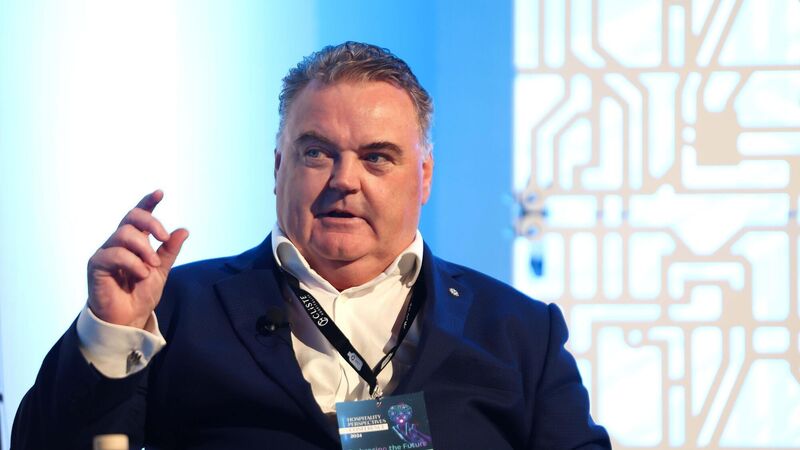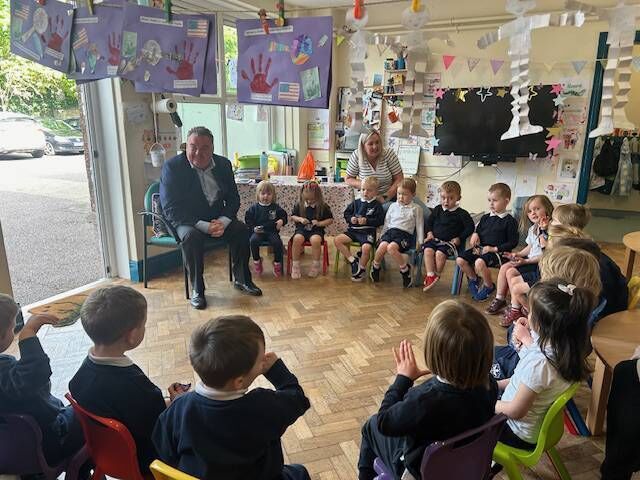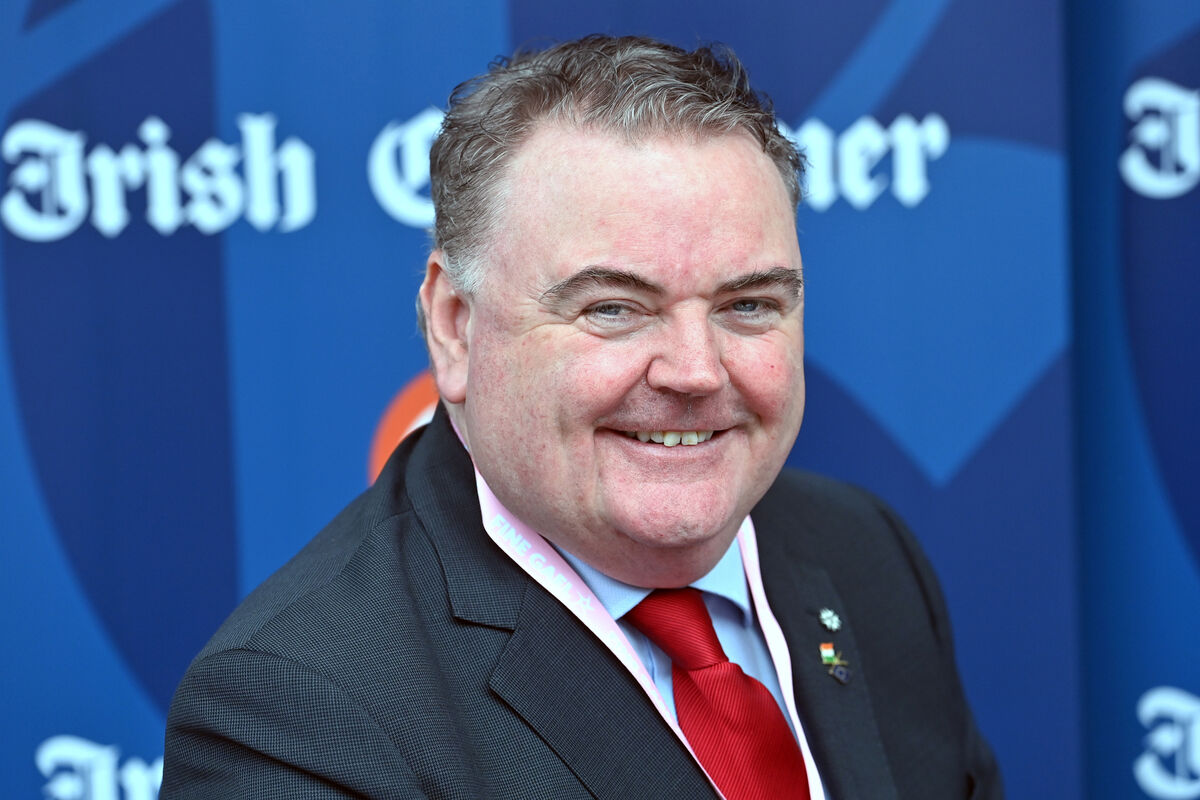John Mullins: The larger-than-life character will be a huge loss to Cork

John Mullins: It is still hard to believe that such a larger-than-life character, full of wit and mischief, is no longer with us.
Early morning texts and calls rarely herald good news. That was true last Monday, when phones started to chirrup all over Cork and beyond before 9am with a terrible message — the sudden passing of John Mullins at the age of just 57.
It is still hard to believe that such a larger-than-life character, full of wit and mischief, is no longer with us. He will be a huge loss to Cork, the city he always championed, to the companies he founded and led to success, to his innumerable friends, and to countless business acquaintances and contacts. Above all his passing is a searing blow to his family, who knew him best.
John crammed more than one career into his life. He enjoyed dazzling academic success in both the North Monastery and University College Cork, qualifying as an electrical engineer and then moving seamlessly into the business world: he was chief executive of Bord Gáis before he was 40, just one highlight in a career with plenty of peaks.
President of the Cork Chamber of Commerce from 2011 to 2013, chairman of the Port of Cork board between 2013 and 2018. He was a member of the board of directors of Páirc Uí Chaoimh and the One Cork fundraising committee.
After Bord Gáis he set up Amarenco, a solar energy company, but his entrepreneurial bent was questioned by at least one person who should have known better.

When he told me he was going to start a company which would specialise in solar power, I was sceptical. He shared that news over a coffee on Lapp’s Quay, where it may have been particularly overcast, which would have added to my doubts: “Here? Solar power?” "Different places," he said. “France. Yemen. The Caribbean.”
I gave him the benefit of my perspective ("Insanity") and he nodded and went ahead, and to be fair, when he made a spectacular success of Amarenco, he never once brought up my lack of confidence, though the texts which landed in from distant parts often had an implied reproof (“Cant meet this week. In Oman. V sunny here”).
Snapshot: a gaggle of us as first years in Buttevant, or Emly, or some such hamlet in the Golden Vale, spilling out of a sweetshop with a hundredweight or so of varied chocolates stuffed in pockets. Leading the way up to the playing field to cheer on the Mon’s Harty team, laden down with Maltesers and Rolos: one S Ó Maoláin.
Another snapshot: another town, but this time it’s Cashel. We’re third years on a bus, stuck in traffic on the main street, on our way to play football in Dublin. The local schoolkids are spilling out of school and a couple of us make some unmistakably provocative gestures at them; they respond by pelting the bus with eggs.
Two teachers rush down the back of the bus suspecting — accurately — that their passengers may not be entirely innocent. John saves the day by suggesting the Tipperary natives responded instinctively to the Cork address on the side of the bus.
That was him — always a man to help in a practical way, not with vague exhortation, but with constructive, decisive action. And the wit to pull it off, of course.
Years ago. I was writing a book about money in the GAA and reached a point well known to any author wrestling with such a project, the stage described by a fellow sufferer as Losing Heart. I bumped into John at some function and mentioned the book.
He suggested a coffee and when we met he was a) full of helpful direction, b) generous with his phone book (“And definitely ring him, if there’s any issue tell him I gave you his number”), and c) effortlessly generated an entire chapter on his own.
When I asked him about sponsorship and Gaelic games he sketched out a detailed breakdown of how he had steered Bord Gáis to sponsoring of U21 hurling. He threw his head back and roared with laughter, describing one of the first games covered by the deal, a controversial Clare-Tipperary game in Ennis which ended with an unusual refereeing call, a late winner, angry supporters invading the pitch — resulting in plenty of headlines featuring Bord Gáis, which only went to endorse his judgement on the sponsorship deal.
Sport was a great constant for John. The avid golfer of later years succeeded the lanky half-back who wore the blue and white of the North Mon in Gaelic football — at a press call in Croke Park years later he was one of the few people on hand who could claim to have won an All-Ireland colleges medal on the field outside the window.
He also gave a huge amount of time and energy trying to resolve the financial issues in Cork GAA arising from Pairc Uí Chaoimh’s redevelopment. Sometimes we disagreed fundamentally on this matter — or others — but he would argue on the facts and seek a resolution rather than squabble. The engineer came out in him during those discussions as he looked for answers to problems, not victories in argument: he had his eye on the bigger picture always.

His work made a difference elsewhere also. He chaired Energy Cloud, which seeks to help those in energy poverty. He was founding chairman of Irish charity for bereaved parents, Anam Cara, while he represented Age Friendly Ireland in Cork City; and of course, the Alliance Française de Cork, where he was a long-standing board member and president.
With all of those commitments he was generous with the most valuable commodity any of us have — his time.
No-one handed John anything. He benefited from neither nepotism nor favouritism, achieving what he did on the back of a sharp, inquiring intellect and a terrific work ethic, faith in his own judgement and his willingness to take a risk, along with the full backing and support of his family.
A long-running interest in politics ultimately led to a bid for a seat in last year’s European elections, but he had already contributed more to Irish life than many a politician.
Cork will miss him. We all will.
Condolences to John’s wife Siobhan, children Michael and Sarah, his parents Pat and Maureen, his brothers Jim, Pat, Kieran and Brian, and his extended family.





